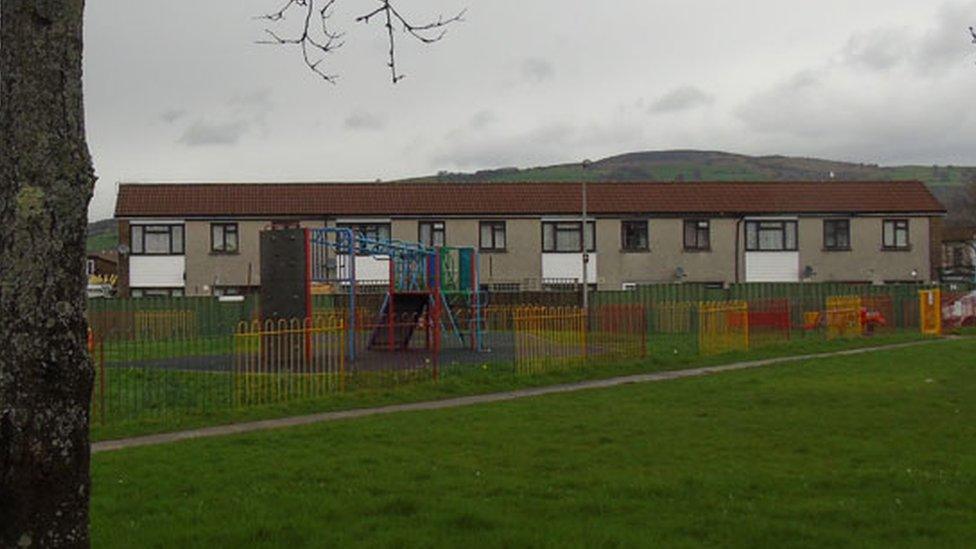Caerphilly estate residents tired of 'being called scum'
- Published
More than 2,000 people live on Lansbury Park and many are fed up of being judged
"People say we are all scum, that you'll get stabbed. No-one here is scum, I've had enough of it."
Kelly Jones lives in Lansbury Park, a housing estate in Caerphilly in the south Wales Valleys.
A stone's throw from Caerphilly Castle, part of the area has been the most deprived in Wales since 2014, according to official statistics.
But many who live here are proud of their community and say they are fed up of being judged.
Built in the 1960s and made up of council houses and privately owned and rented homes, more than 2,000 people live on the estate.
But for decades people who do not live in Lansbury Park have associated the name with drugs, antisocial behaviour and poverty - and those living here say it is not justified or fair.
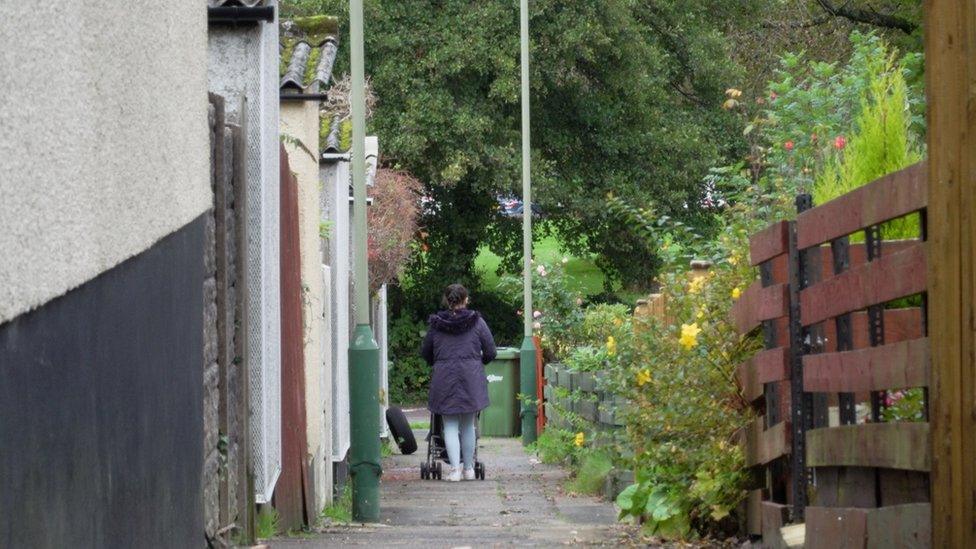
There is a waiting list for council homes on the estate
In 2014, St James 3, an area which includes part of the estate, was ranked highest on the Welsh Index of Multiple Deprivation (WIMD), external.
This ranks small communities on issues like education, income, crime and unemployment, to help work out where investment is needed.
With the next WIMD update due to be published in November, residents hope their home will no longer be top of the list - but many fear the stigma will stick for years to come.

Kelly says she wants the best for her son and to be able to take him on trips and holidays
"There is nothing wrong with our estate, everyone is trying their best, it will be so disappointing if it happens again," says Kelly, who has lived in or near Lansbury all her life.
Now 27, she juggles bringing up her son Mason, almost two, while working part-time as a qualified play assistant in Cardiff.
"It is a community, it is not just a housing estate. I get on with all my neighbours, I've got great friends," said Kelly, who is part of a group of parents who meet up to learn new skills and drive forward change on the estate.
Kelly, who has worked since she was 18, gets universal credit payments which vary depending on her hours, and barely cover the £470 a month rent and council tax.

How is a community classed as the most deprived?
1,909small areas are compared, based on directly comparible stats
Eight separatetypes of deprivation are compared
Health, education,employment, crime, housing, are among them
Used to informpolicy makers and organisations of priorities and needs
Just over half of the estate is classed as the most deprived in Wales.
The other part is in the St James 4 area - which is also in the top 10% of the most deprived areas.
At the time of the last census nearly two-thirds of households in St James 3 were classed as being in poverty, with about 60% of those in work with low-paid jobs.
Despite the label, there is a waiting list to have a council property on the estate - and some have moved into the area and bought homes here.
Many living on the estate love how well placed it is - with good transport links to Cardiff.
But changes to benefits have affected many residents.

Life on the estate

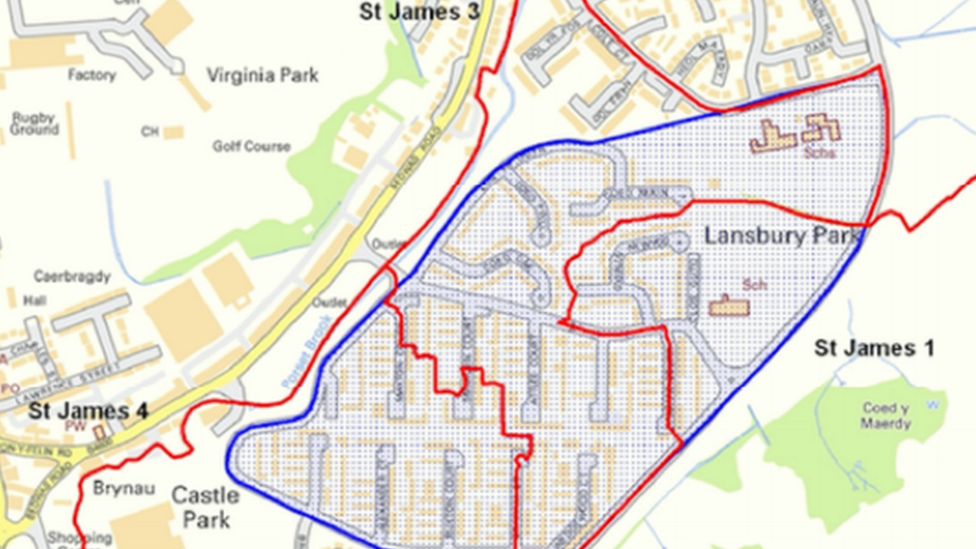
Lansbury Park falls into two areas used in official statistics - both among the most deprived in Wales
Rolled out across Wales at different times, universal credit was introduced in Caerphilly in September 2018.
It rolls six benefits into one and is paid like a monthly pay cheque. Some say this has left them with no cash for weeks and struggling to make ends meet.
Another change saw cuts to housing benefit for people who had spare rooms they did not use - the so-called "bedroom tax".
One mother said she asked the council for a smaller home when her daughter moved out, but there were none available, so she ended up in arrears.
Another, who moved to private renting after trying to downsize, said she was fighting to keep up with rising bills.
"You either go into debt to pay or you cannot afford to live," she said.
The UK government has previously said universal credit was working well and helped people get into employment faster.
Caerphilly council admits there is a shortage of smaller properties, but said the level of evictions was no higher than elsewhere, and a team is based in the community to help with housing and benefit issues.

Why was the estate classed as the most deprived?
50%of men and 60% of women were unemployed in 2011 census
80%of tenants were claiming housing benefits
60% of tennants were in rent arrers
52%of adults living in the estate have no formal qualifications
54.8%households don't have access to a car
18%are single parents
A number of mothers said their children's friends would not visit because they lived in Lansbury.
Others said they would not tell people where they were from.
"There is good and bad everywhere, but when I worked in town, if we had shoplifting, people would always say 'they're from Lansbury Park'," said Sian.
You’ll never be lonely in Lansbury. No matter who you are you can walk through and people will stop and talk to you - it’s a community not an estate
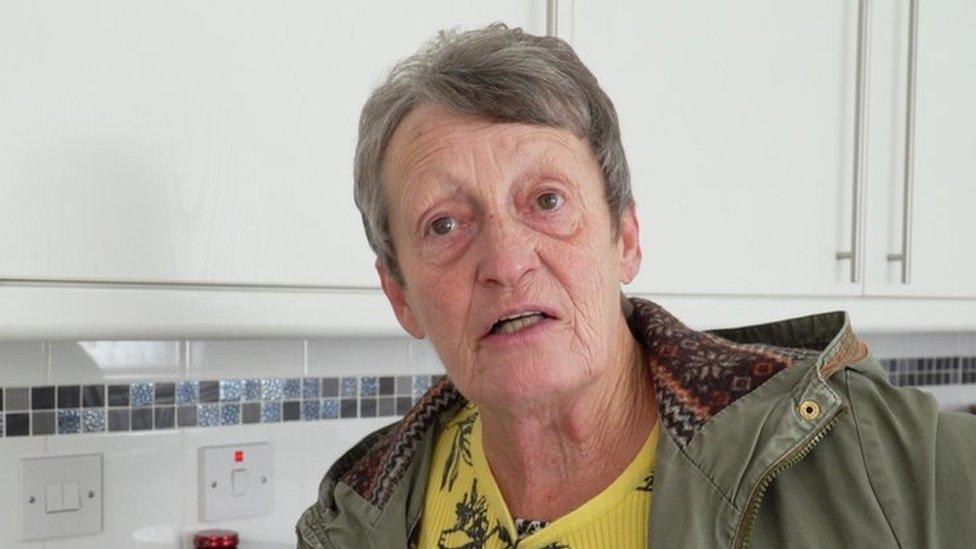
Jan Crimmins said her children had an amazing education in Lansbury
One woman said she was scared when she first moved in, but now she cannot imagine living anywhere else.
Another, who has now moved, said: "I've been attacked because of where I am from. I had to say I lived near Bedwas Road, I couldn't get a job otherwise."
"When people throw that stigma it tends to stick. Once you have got that it is hard to shake off," says Jan Crimmins.
"I see good on the park as I have always seen - the park is in my heart," she said.
"Do not judge Lansbury Park until you've come and seen the great people and children that are living here."
This story is part of a special series from Lansbury Park. BBC News is exploring the challenges and the opportunities for those living and growing up on the estate.
- Published27 September 2018
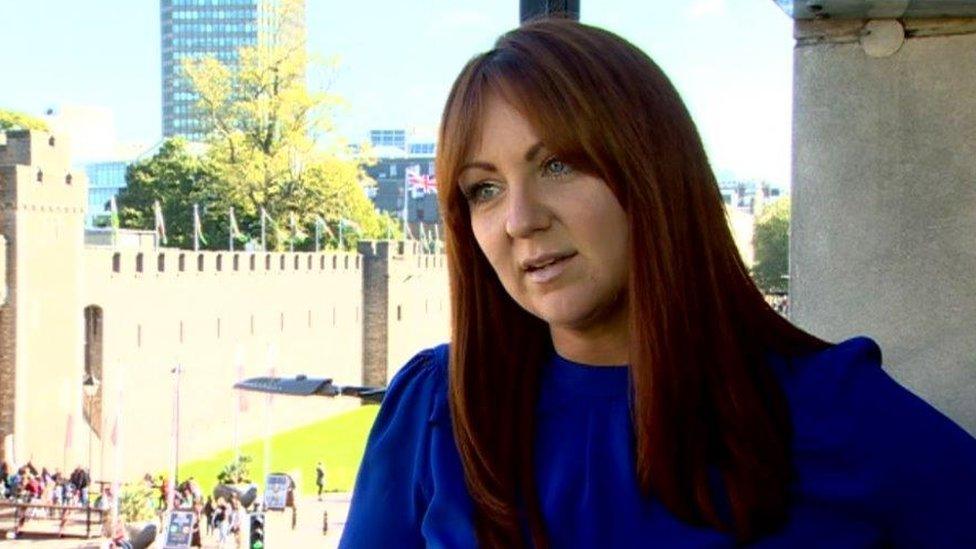
- Published14 March 2016
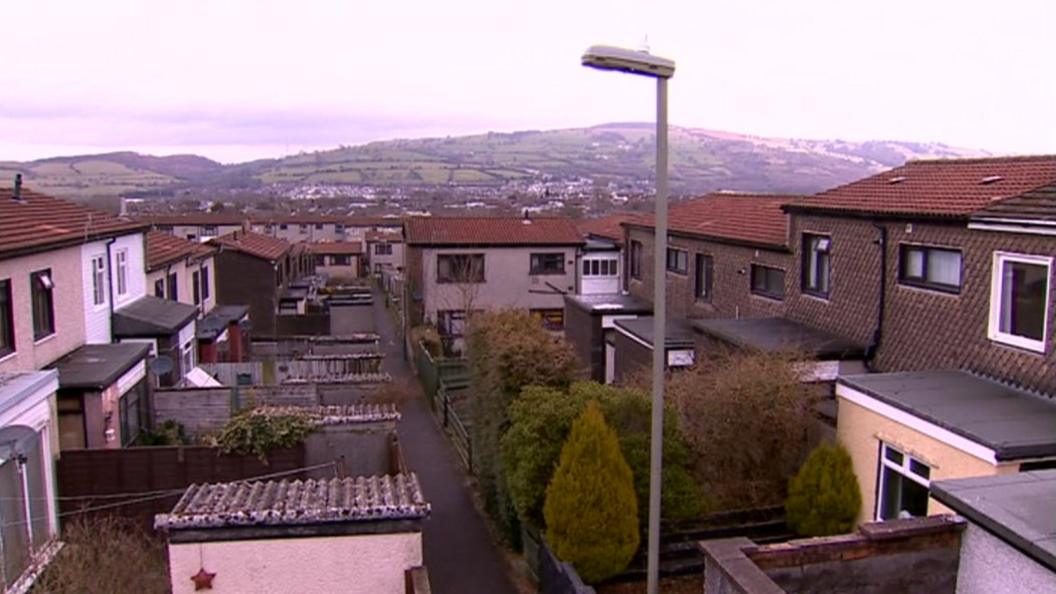
- Published13 April 2017
